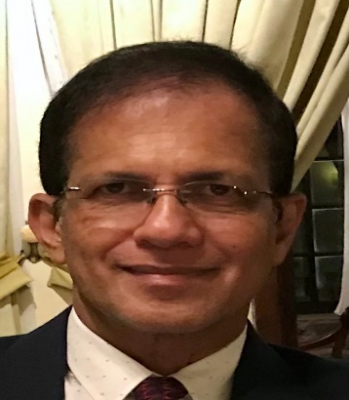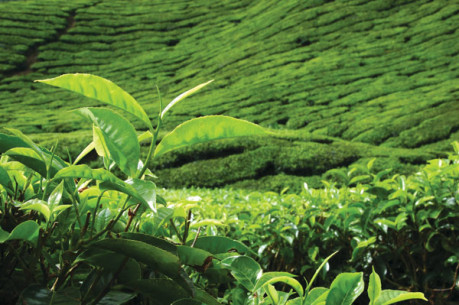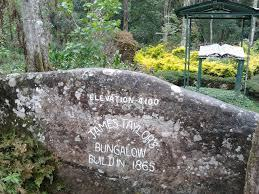Meeting of the Ceylon Society of Australia on Sunday, 27th February 2022 talk will be by Roderick de Sylva on “The Development of the Tea Industry in Sri Lanka”
Members of CSA and guests are welcome to the Meeting of the Ceylon Society of Australia on Sunday, 27th February 2022 commencing at 6.30 pm at the Main Hall of the Pennant Hills Community Centre on Level 1, Ramsay Road, Pennant Hills, NSW 2120. Ramsay Road is off Yarrara Road and the Community Centre is opposite the Pennant Hills Railway Station. The entrance to the building is from the car park at the back of the building.
The talk will be by Roderick de Sylva on “The Development of the Tea Industry in Sri Lanka”, followed by a Q&A. The meeting will conclude with the usual social with tea/coffee and some short eats. A donation to the CSA to help defray expenses would be appreciated.Note: Full vaccination confirmation and QR Code at entry.
 |  |
Biodata on speaker and synopsis of the talk as follows.
Roderick joined Lipton Ceylon in 1973 as a ‘Trainee Tea Executive’. The title Tea Executive encompassed the roles of Tea Taster, Tea Buyer, Tea Blender and Marketer of tea.
After training in the administration and support departments, he learned aspects of tea cultivation and manufacturing on the model Lipton tea estate, Dambatenne in Haputale. He then entered the world of tea, specializing to be a Tea Taster. It is a role much like that of a Wine Taster, with many similarities, as tea quality is impacted by ecological, climatic and manufacturing factors. Besides tasting, the task of buying at the tea auctions is a challenge requiring the additional skillset needed to blend different teas to achieve a consistent standard.
Roderick spent 14 years with Lipton Colombo, during which time Lipton was acquired by Unilever, with Brooke Bond also being acquired by Unilever several years later. He became a senior Tea Executive, with time in Malawi and subsequently in Singapore as Acting General Manager for the Unilever Tea Divisions.
A few years after Roderick migrated to Australia in 1987, he was head hunted back to Unilever by an English expat he had trained in tea tasting in Sri Lanka and joined their Tea Division in Sydney in 1994, where he tasted and bought teas from the tea auction centers around the world’s tea producing countries. He had the responsibility for blending the teas from samples, before releasing the blends for packing by the packing plant in Melbourne, into the Lipton, Bushells and LanChoo brands of tea.
The 10 years in this role came to an end when Unilever decided to close the packing plant in Australia and import the brands as a finished product from bigger volume packing plants around the world, based on the same blend standards established in Australia, and this followed the exit as well of the other large packer, Tetley.
Synopsis of Talk
Tea is the second most consumed beverage in the world next to water.
In 1824 tea was experimentally planted by the British in Sri Lanka, from seedlings from China and India, with the first commercial tea plantation begun with a small estate in Loolecondera near Kandy in 1867. The first tea factory was built there in 1872, and in 1875 the first consignment was shipped to the London Tea Auctions. Tea planting then began to overtake coffee, which was devastated by a fungal blight known as Coffee Rust.
The first public tea auction in Sri Lanka was held in 1883 by Sommerville & Co. The Colombo Tea Auction is the oldest and biggest Tea Auction center in the world. Tea is mostly sold through Tea Auctions in the major tea producing countries. The tea brokers and potential buyers taste and evaluate thousands of teas before buying them at the auctions, based on mostly overseas customers’ requirements. The teas may be shipped as they are or blended into consistent standards, ready to be packed.
In 1925 the Tea Research Institute was established for research into maximizing yields and methods of production. In 1955 the first commercial vegetative propagation of tea plants commenced from clonal varieties rather than from seedlings, and in 1965 Sri Lanka became the world’s largest exporter of tea. Tea in Sri Lanka is grown in six principal regions, and categorized by elevation as High, Medium and Low Grown, with each district and elevation imparting its own distinct characteristics, in conjunction with geological, soil, climate, wind and rain patterns and manufacturing processes. Ceylon Tea has a unique flavor and is sought after.
In the 1970s the government nationalized the tea estates, and in the early 1990s, many of the tea estates were again privatized. Tea is still a vital export for Sri Lanka and holds an important place in the economy.









